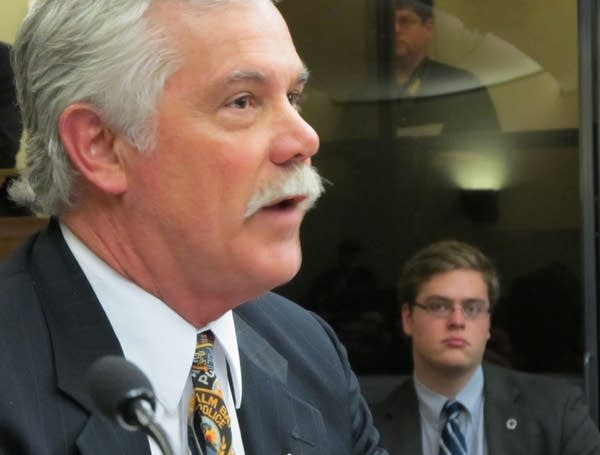In Midwest, GOP shrinks from union battles
Go Deeper.
Create an account or log in to save stories.
Like this?
Thanks for liking this story! We have added it to a list of your favorite stories.

Fifteen months after taking control of Minnesota's Legislature, Republicans have put a gay marriage ban on this November's ballot, moved to expand gun rights and cast dozens of votes to cut state spending.
But there's one issue where they failed to get traction: watering down the strength of organized labor with a right-to-work law.
The problem isn't so much opposition from Democrats. And it isn't a lack of enthusiasm for the idea, which many conservatives consider essential for creating a business-friendly economic climate.
The problem lies with Republicans who fear triggering a huge rebellion among opposition labor unions and sending a surge of sympathetic voters to the polls in November to vote Democratic.
Turn Up Your Support
MPR News helps you turn down the noise and build shared understanding. Turn up your support for this public resource and keep trusted journalism accessible to all.
In Minnesota and elsewhere across the Midwest, the question of what to do about the right-to-work issue is pitting Republican against Republican, straining relationships among longtime allies and weighing cherished ideals against political tactics.
"We wait and we wait and we wait, and then if we get the opportunity and we fail to take it, then the issue is done," said Michelle Benson, a frustrated Republican state senator from suburban Minneapolis who sounded off after House and Senate leaders recently decided not to move on the issue.

The passage of a right-to-work measure in Indiana this year emboldened supporters in Minnesota, Michigan, Ohio, Wisconsin and Missouri to try to carry the initiative across across the Rust Belt. But many GOP leaders were instead more impressed by the furor that the unions kicked up in defeat.
Throngs of protestors mobbed the state capitol in Indianapolis and Democratic lawmakers periodically disrupted the legislative session with boycotts. Huge demonstrations also came after Wisconsin Republicans stripped public employees of collective bargaining rights last year.
"Whether you agree with right to work or not, you've got to agree there'll be millions of dollars coming in from other states, and thousands of people," said Minnesota state Rep. Tony Cornish, a Republican who opposes trying to pass a bill. "Buses emptying out, banners, people camping."
The Minnesota proposal had one committee hearing last month -- provoking a labor protest and AFL-CIO sponsored TV ads. Although union membership has declined nationally in recent decades, organized labor remains a political force in Minnesota, with the AFL-CIO boasting about 300,000 members. As a result, Republicans did nothing with right to work this year.
In Ohio, a coalition that includes some tea party groups is collecting signatures to get a right-to-work amendment on the statewide ballot but Republican Gov. John Kasich has publically dismissed the effort. In Michigan, Republican House Speaker Jase Bolger has been leaning toward supporting a right to work measure, but Republican Gov. Rick Snyder has said he wants no part of it.
"Right-to-work is such a divisive issue," said Amber McCann, a spokeswoman GOP Senate Majority Leader Randy Richardville, who has said he would consider Senate passage unlikely.
----
Associated Press writers Tim Martin in Lansing, Mich., Scott Bauer and Todd Richmond in Madison, Wis., and Ann Sanner in Columbus contributed to this report.
Dear reader,
Your voice matters. And we want to hear it.
Will you help shape the future of Minnesota Public Radio by taking our short Listener Survey?
It only takes a few minutes, and your input helps us serve you better—whether it’s news, culture, or the conversations that matter most to Minnesotans.




